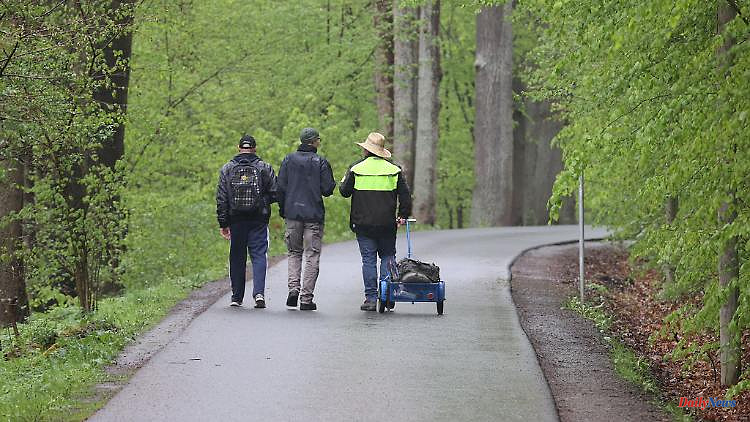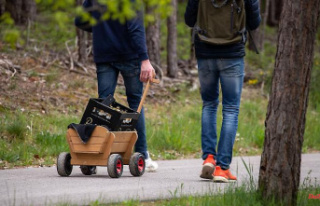One idea persists: On Father's Day, men are out and about with beer and handcarts. This seems to belong more in the "Once upon a time..." category.
Erfurt (dpa/th) - From the point of view of the police in Thuringia, the major escalations surrounding the so-called Father's Day are increasingly absent. "It's decreasing more and more," said the spokesman for the Thuringian state police department, Patrick Martin. The police keep an eye on the Ascension Day holiday or "Father's Day" and are also on duty with more staff than on other days. For years, however, fewer and fewer men have been on Father's Day tours without children and cones and instead with beer and handcarts.
Father's Day, also known as Men's Day, traditionally takes place on the Ascension Day holiday, i.e. 40 days after Easter. Unlike Mother's Day, it is not officially on the calendar. For many men it is still a fixed date - like this Thursday (May 25th). Most recently, the day with its traditionally boozy "men's parties" and hiking tours fell victim to the corona pandemic. According to a study by the University of Jena (2016), more patients than usual are treated in the emergency room because of their alcohol consumption on public holidays such as Men’s Day or Father’s Day.
When German men with beer kegs and handcarts loudly parade through the area, only very few are likely to be aware of the roots of this custom. Since the 4th century, Christians have been celebrating the "raising" of Jesus into heaven, the return of the Son of God to the Father on Ascension Day. Later that day, believers would parade around the fields asking for a good harvest. Evidence from the early 16th century shows that there was already plenty of drinking at that time. Finally, the Christian origins increasingly receded into the background: In the 19th century, the first "men's tours" to the countryside became fashionable, even then women were not there.
That seems to be changing, say Jana Kampf and Juliane Stückrad from the Folklore Advice and Documentation Center for Thuringia in Hohenfelden (Weimarer Land). "It's turning into a family outing day," says Kampf. In recent years, beer and handcarts have increasingly been replaced by women and children or mixed-gender groups of friends, and fewer and fewer "hordes of drunk men roam the botany". Rather, public holidays and bridging days are increasingly spent with the family. Kampf pointed out, however, that this is a purely subjective opinion that is not based on sociological or ethnological studies.
Like Mother's Day, "Father's Day" has its roots in the USA. It was invented by a woman: Sonora Louise Smart Dodd from the small town of Spokane in the US state of Washington. After the death of his wife, her father raised six children alone. To honor him, and inspired by the newly established Mother's Day, Dodd first persuaded local authorities to begin commemorating fathers on the third Sunday in June, beginning in 1910. Six years later, President Woodrow Wilson celebrated Father's Day at the White House, but it wasn't until 1972 that Richard Nixon declared it an official holiday.












